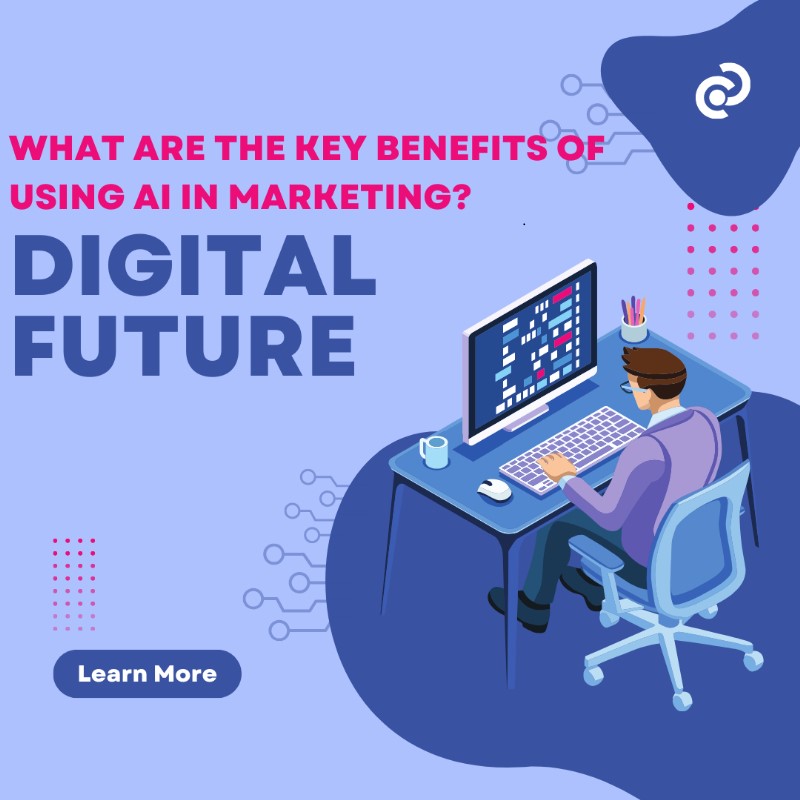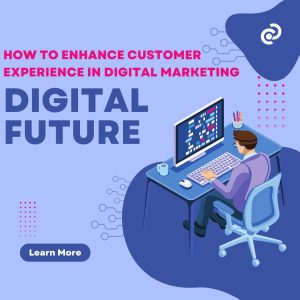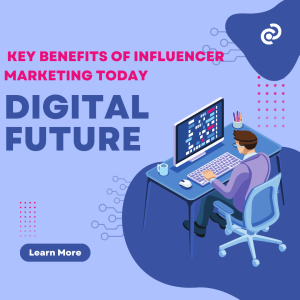In the ever-evolving world of digital marketing, the integration of Artificial Intelligence (AI) is proving to be a game-changer. AI is not just a buzzword; it’s a powerful tool that is transforming how businesses connect with customers, optimize campaigns, and predict trends. From personalized experiences to data-driven decision-making, AI is revolutionizing digital marketing strategies. This article explores the role of AI in digital marketing, highlighting how it is being used today and its potential in the future.
What is Artificial Intelligence?
Artificial Intelligence refers to the simulation of human intelligence processes by machines, particularly computer systems. It involves machine learning (ML), natural language processing (NLP), robotic process automation (RPA), and deep learning. AI systems analyze data, recognize patterns, and make decisions with minimal human intervention. In the context of digital marketing, AI helps businesses optimize campaigns, enhance customer experiences, and gain insights from vast amounts of data.
The Role of AI in Digital Marketing
The role of AI in digital marketing can be categorized into several key areas: customer personalization, content creation, data analysis, predictive analytics, and automation. Let’s take a closer look at each of these applications.
1. Personalized Customer Experiences
One of the most significant contributions of AI in digital marketing is its ability to personalize the customer experience. In the past, marketers relied on broad customer segments to create campaigns. Today, AI enables hyper-personalization, where each customer receives content, product recommendations, and offers tailored to their individual preferences.
a. Dynamic Content Delivery
AI-powered algorithms track customer behavior across various touchpoints, including websites, social media, and emails. This allows brands to deliver highly relevant content in real time. For instance, an e-commerce site can recommend products based on a customer’s browsing history or purchase patterns. AI analyzes factors such as age, location, and past interactions to personalize email marketing, ensuring that subscribers receive messages that resonate with their interests.
b. Chatbots and Virtual Assistants
AI-driven chatbots have become an integral part of customer service and engagement. These bots use natural language processing (NLP) to understand and respond to customer queries in real time. For businesses, chatbots help automate customer support, address frequently asked questions, and even assist in the buying process. They are available 24/7, ensuring that businesses can provide immediate assistance to customers across different time zones.
2. Enhanced Content Creation and Curation
Content creation is at the heart of any digital marketing strategy. AI tools are increasingly being used to streamline content creation, curation, and distribution, allowing marketers to focus on strategy and creativity.
a. AI-Powered Writing Tools
AI tools like GPT (Generative Pre-trained Transformer), including OpenAI’s own models, are capable of generating high-quality written content, ranging from blog posts and social media captions to product descriptions and email newsletters. These tools help marketers save time on content creation by generating ideas, drafting copy, and even optimizing content for SEO. AI can analyze search trends and suggest keywords that are likely to improve a page’s ranking in search engine results.
b. Content Curation
AI can also be used to curate content for specific audiences. By analyzing user preferences, browsing history, and interactions, AI can suggest relevant content to users in real-time. This improves user engagement and ensures that customers are consistently receiving content that matches their interests.
3. Data Analysis and Insights
AI excels in processing large volumes of data to uncover actionable insights. In digital marketing, data analysis is essential for understanding customer behavior, campaign performance, and market trends. AI-driven tools can sift through vast datasets, identify patterns, and generate insights that would be impossible for humans to spot manually.
a. Predictive Analytics
AI-powered predictive analytics is one of the most promising areas in digital marketing. By analyzing historical data, AI models can predict future trends and consumer behavior. This allows businesses to anticipate customer needs, optimize product recommendations, and identify potential churn before it happens. For instance, if a customer has been purchasing products in a specific category, AI can predict which other products they might be interested in and suggest them proactively.
b. Performance Analytics
AI also helps digital marketers measure the effectiveness of their campaigns. By integrating AI into tools like Google Analytics or social media platforms, businesses can gain real-time insights into how their content is performing, the demographics of their audience, and which marketing tactics are generating the best results. This allows for quick adjustments, ensuring that resources are allocated effectively.
4. Predictive Analytics and Campaign Optimization
Another area where AI shines is predictive analytics, which allows businesses to anticipate customer behavior and optimize marketing campaigns before they are executed. Predictive models use historical data to forecast trends and potential outcomes. In digital marketing, this can be used to identify which customers are most likely to convert, which products are trending, and how to best allocate marketing budgets.
a. Lead Scoring and Segmentation
AI can improve lead scoring and customer segmentation by analyzing customer data such as browsing history, past purchases, and engagement patterns. This allows marketers to classify leads more accurately and tailor their outreach strategies. By predicting which leads are most likely to convert, AI ensures that marketing efforts are focused on the most promising prospects.
b. Ad Targeting and Campaign Optimization
AI plays a crucial role in optimizing paid advertising campaigns. Platforms like Google Ads and Facebook Ads use machine learning algorithms to refine ad targeting, ensuring that ads reach the right audience at the right time. AI continually analyzes campaign performance, adjusts bids, and tests variations of ads to maximize the return on investment (ROI).
5. Marketing Automation
Marketing automation is one of the most widely adopted AI applications in digital marketing. By automating repetitive tasks, businesses can focus more on strategic decision-making while ensuring that their marketing efforts are timely and consistent.
a. Automated Email Campaigns
AI-driven automation allows businesses to send personalized email campaigns based on customer behavior. For example, if a customer abandons their shopping cart, an automated email can be triggered to remind them about the items they left behind, potentially offering a discount to encourage them to complete the purchase.
b. Workflow Automation
AI can automate workflows across multiple channels. For example, AI tools can automate social media posts, blog publishing, and email sequences based on customer actions or specific dates. This ensures that businesses maintain a consistent presence across platforms without constant manual input.
The Future of AI in Digital Marketing
Looking ahead, the potential of AI in digital marketing is vast. As technology continues to improve, AI is expected to become even more integrated into marketing strategies, enabling businesses to achieve greater levels of personalization, efficiency, and effectiveness.
1. Voice Search Optimization
As voice search continues to gain popularity through devices like Google Home, Amazon Alexa, and Siri, AI will play an increasingly important role in optimizing content for voice queries. Marketers will need to adapt their SEO strategies to account for the conversational nature of voice search.
2. Emotion AI
Emotion AI, which uses facial recognition and voice analysis to detect emotions, is expected to become more prominent in digital marketing. By understanding a customer’s emotional state, AI can help marketers create more empathetic and engaging content.
3. Advanced Customer Insights and Personalization
AI’s ability to predict future trends and personalize experiences will continue to improve. With advancements in machine learning and data analysis, businesses will be able to create even more personalized marketing campaigns, offering customers exactly what they want, when they want it.
Conclusion
Artificial Intelligence is no longer a futuristic concept but a present-day reality in digital marketing. From enhancing customer experiences and automating campaigns to analyzing data and improving content creation, AI is reshaping the marketing landscape. As AI technology continues to evolve, businesses will find even more innovative ways to engage with customers and optimize their marketing efforts, making AI a critical tool for success in the digital age. The future of digital marketing is AI-powered, and the possibilities are truly endless.




This is a really insightful article on how AI is reshaping digital marketing! I especially found the examples of AI in customer behavior analysis and content personalization very relevant to current industry trends. For anyone serious about staying ahead in this evolving space, enrolling in a Master in Digital Marketing Course
can provide the right mix of technical and strategic skills to leverage AI effectively. Thanks for sharing this valuable content!